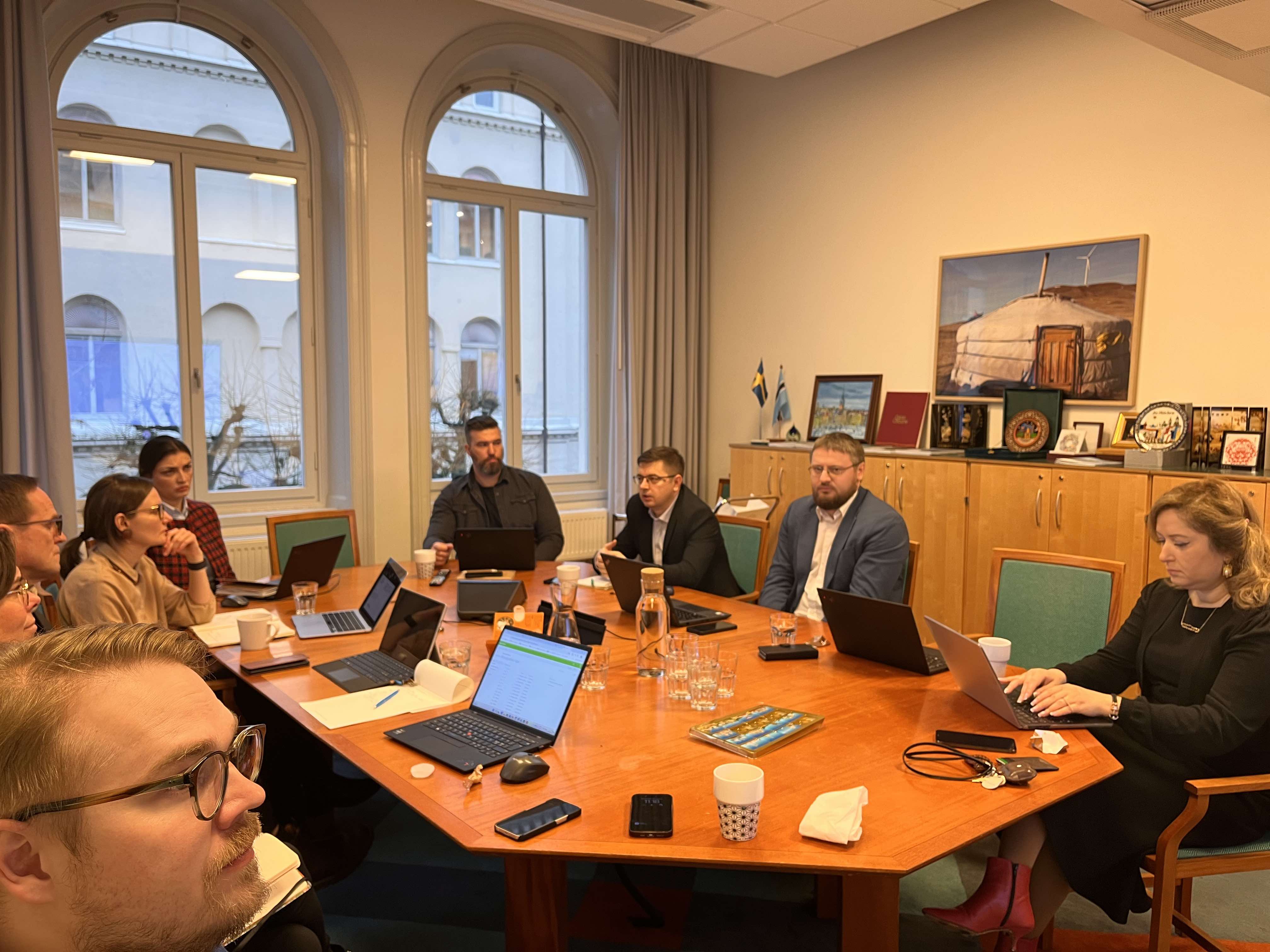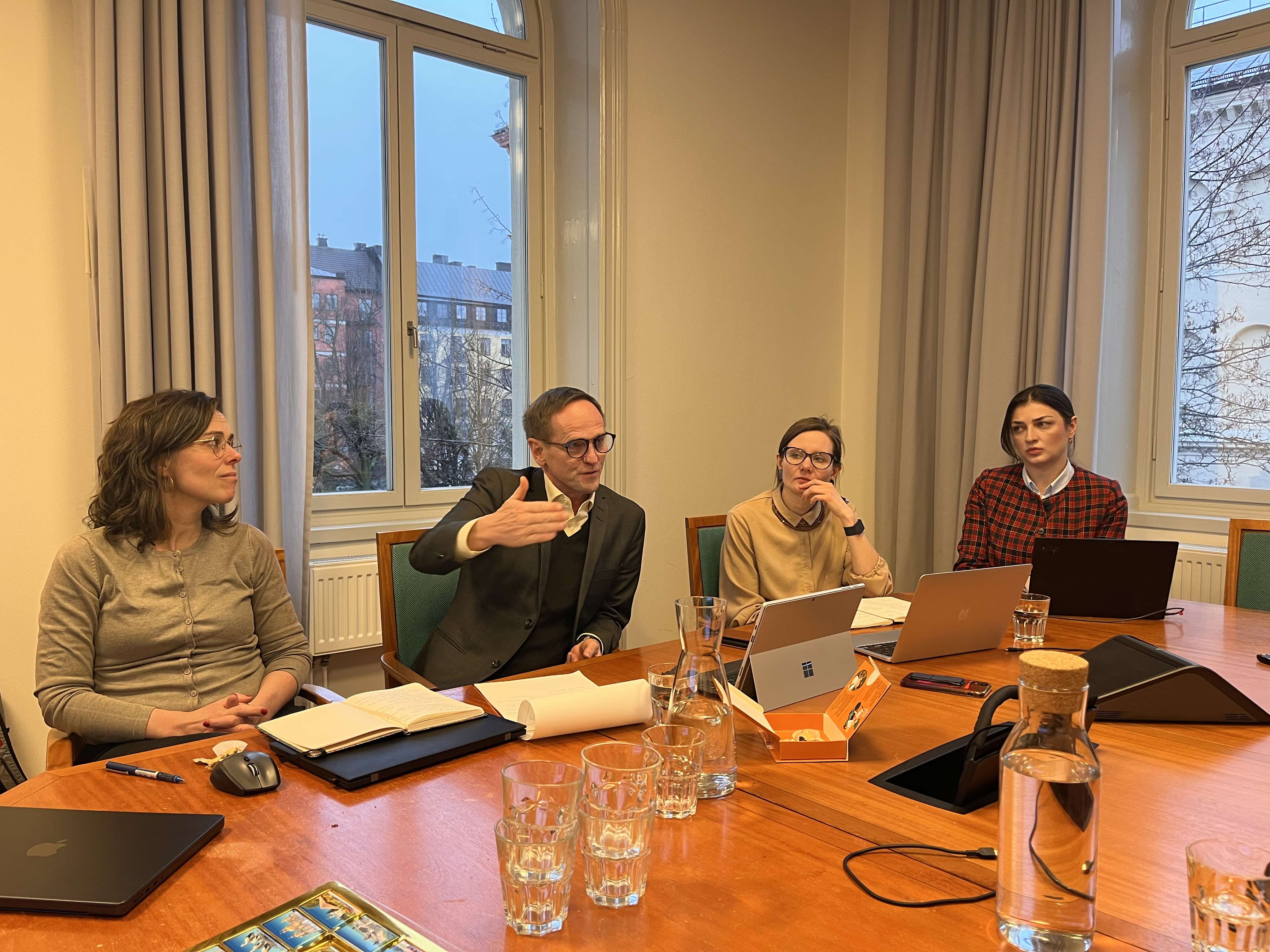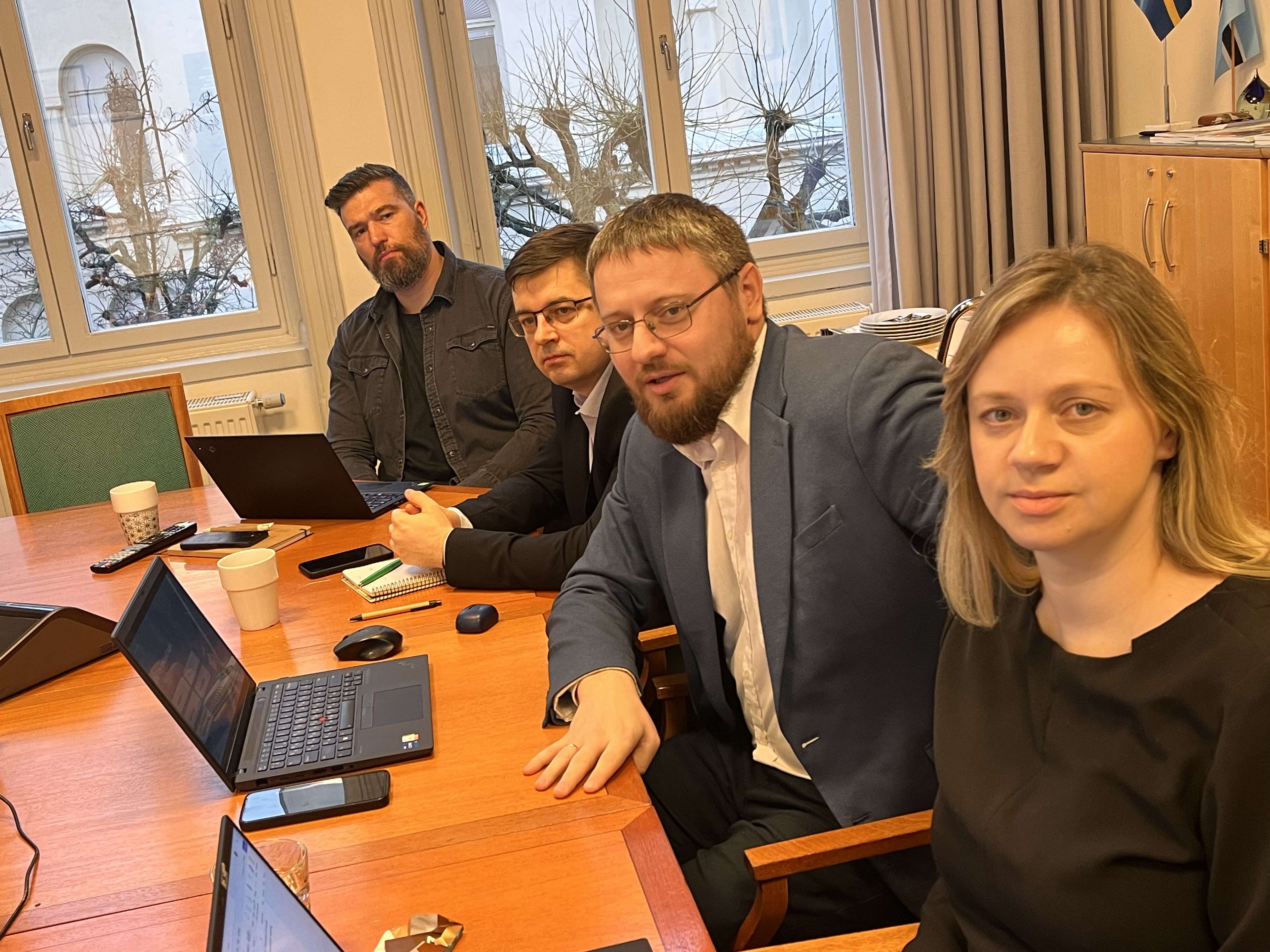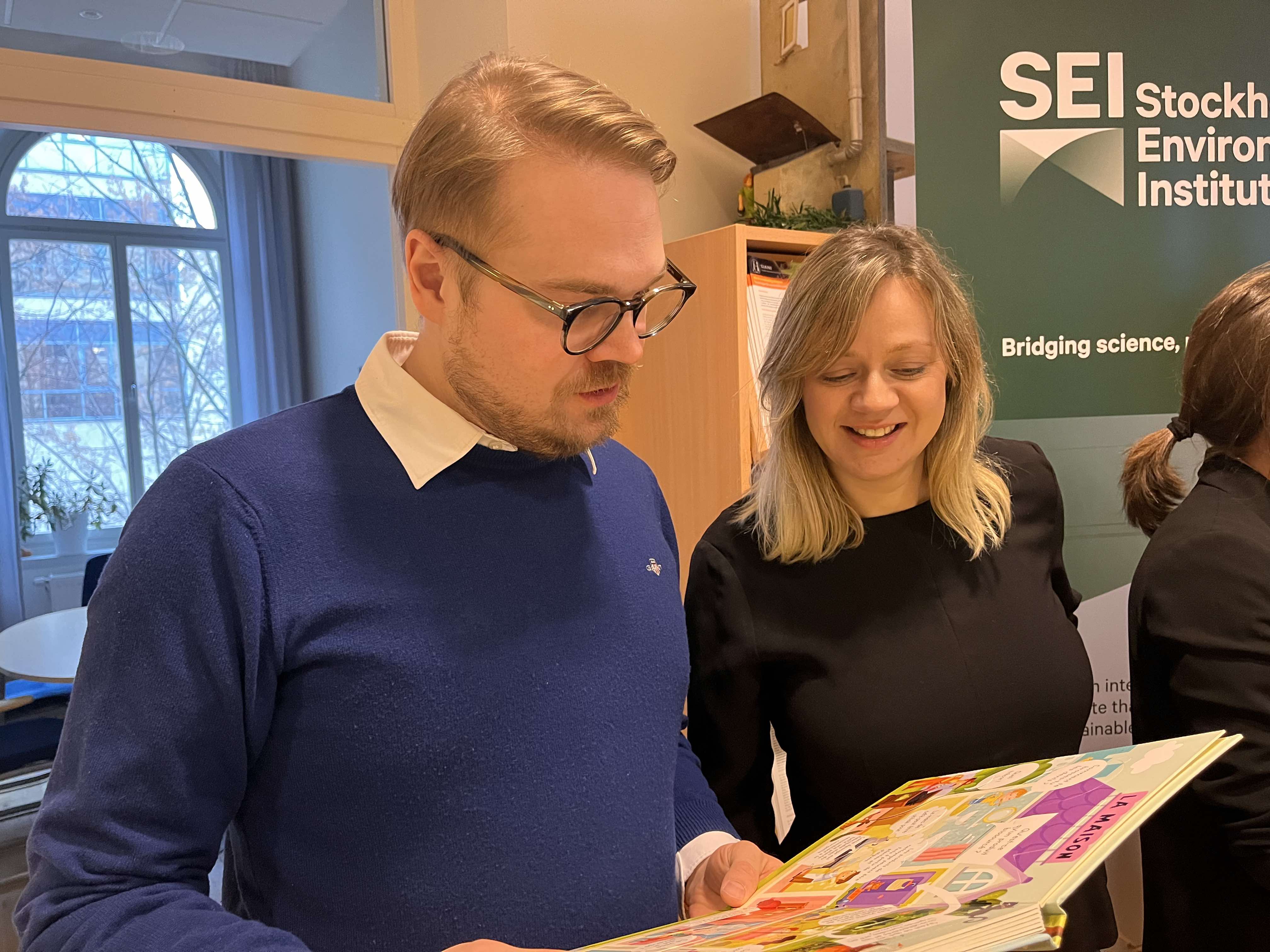Strategic vision for Ukraine’s green transition: paving the path through collaboration with Sweden
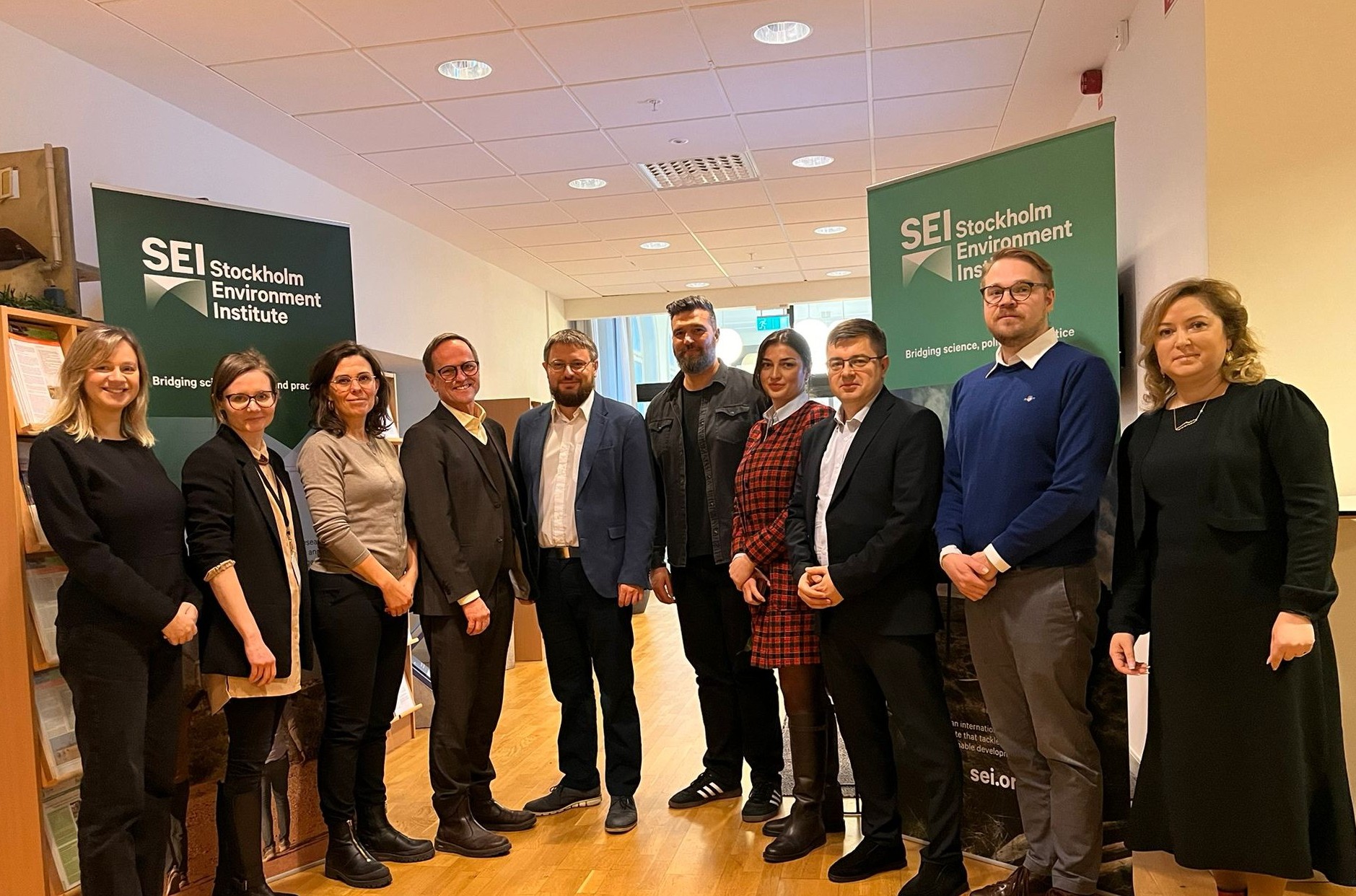
Last week, Ukraine's Green Transition Office (GTO) visited Stockholm for discussions with SEI’s Green Agenda project team and the Swedish Climate Policy Council. The talks focused on aligning Ukraine’s green transition strategies with its recovery and EU accession goals. Plans were made for a high-level Ukrainian delegation to explore Sweden’s support for implementing Ukraine’s National Energy and Climate Plan, highlighting a shared commitment to sustainable development and European integration.
Current situation in Ukraine
Despite the ongoing war with Russia, which necessitates that defense remains Ukraine’s top priority, there is also a critical need to invest in areas such as the green transition – a shift toward a sustainable, low-carbon economy through renewable energy, energy efficiency and climate resilience measures.
This approach supports immediate economic resilience while laying the foundation for a robust and sustainable post-war recovery. By integrating green strategies now, Ukraine will continue to attract international support and investments, create jobs, and reduce its dependency on fossil fuels, thereby enhancing national security.
Even during wartime, there is an unprecedented opportunity to transform economic vulnerabilities into strengths, paving the way for a modernized, sustainable economy. By seizing this moment, Ukraine can emerge from the war poised for long-term growth and sustainability leadership in the region.
In line with this vision, significant progress has been made with the adoption of the National Energy and Climate Plan (NECP) on 25 June 2024 and other essential legislation, establishing a general framework for the country’s climate policy. Currently, Ukraine is developing a comprehensive long-term low-emission development strategy. The GTO plays a critical role in supporting the government with the effective implementation of the National Energy and Climate Plan, the Climate Law, and other strategic documents linked to green transition.
This context set the stage for recent engagements in Sweden, where a shared commitment to advancing Ukraine’s sustainable development was evident, foreshadowing the potential for profound positive impacts on Ukraine's recovery journey.
Swedish and Ukrainian climate councils meet to explore future collaboration
During a meeting with GTO members, Åsa Persson, Chair of the Swedish Climate Policy Council and Research Director and Deputy Director at SEI, together with Ola Alterå, the Council’s Chief of Staff, highlighted the benefits of expanding international collaboration. Alterå stressed the value of utilizing Sweden’s experience in climate policy to help Ukraine achieve its goals. Meanwhile, Persson expressed admiration for Ukraine’s ambitious plans and encouraged ongoing dialogue to address the country's unique needs.
“Our engagements with SEI are a strategic move to integrate advanced European expertise into Ukraine’s reform processes. By learning from Sweden’s successful sustainability strategies, we can effectively support the transformation of high-emission sectors such as agriculture, energy and heavy industry,” stated Mykola Shlapak, the GTO Member and General Manager on Climate Change.
SEI partners with GTO: strategic steps towards Ukraine's climate neutrality
A central focus of the GTO’s visit to Sweden was building a partnership that connect SEI’s national assessments with actionable priority projects for Ukraine. The ultimate goal extends beyond policy alignment; it involves establishing mechanisms and institutional framework that ensure strategic and effective policy implementation, combining efforts from higher authorities with those at the local level.
Andrii Kitura, Head of the GTO, highlighted the importance of international partnerships, stating: "While we have the initial resources, we are actively seeking collaborations to boost our efforts. We anticipate an even more active Government’s participation if we can demonstrate strong incentives, leading to an improved quality of life for the citizens of Ukraine." Kitura underlined the critical need to engage international experts and donors to accelerate Ukraine's transition toward a decarbonized economy.
Discussions centred on identifying strategic cooperation priorities and aligning SEI’s ongoing initiatives with Ukraine’s green transition needs and efforts. The SEI team is finalizing its National Assessment for Green Transition Readiness in Ukraine and developing a climate neutrality modelling tool.
This tool will provide Ukraine with valuable insights into reducing greenhouse gas emissions and help identify the impacts of various policies. The discussions with the GTO are crucial for bridging national assessment findings with key policy developments, ensuring that strategies are coherent and impactful.
Regional cooperation and future steps
Bernardas Padegimas, Head of SEI’s Environmental Policy and Strategy (EPS) team, discussed collaborative opportunities to support Ukraine's EU accession and recovery efforts. These discussions also touched upon similar initiatives in other Eastern Partnership countries, where governments are developing the necessary legislation to address climate change and establishing institutional bodies to ensure effective cooperation between ministries and various stakeholders. Such dialogues are crucial for laying the groundwork for effective cross-border partnerships. The objective is to craft actionable projects paving the way to the region’s alignment with the EU’s Green Deal.
The collaboration between the GTO and SEI extends beyond immediate plans, encompassing multiple forms of cooperation. These include joint efforts on sectoral decarbonization studies, national carbon budgeting and policy coordination. Additional areas of focus include stakeholder training, monitoring frameworks, the development of methodologies for tracking sustainable finance flows, aligning Ukraine’s financial system with EU Taxonomy, and unlocking investment for the implementation of the NECP.
This partnership has the potential to accelerate Ukraine’s green transition while exemplifying the power of international collaboration in promoting sustainable growth and resilience. Furthermore, it aims to strengthen the ties between Ukraine and the European community as they work together toward a more sustainable future.
Understanding Ukraine's Green Transition Office
The Green Transition Office is an independent advisory group playing a crucial role in guiding Ukraine’s green transition efforts. Collaborating closely with the Ministry of Economy and other key stakeholders, the GTO ensures that Ukraine’s planned green reforms serve as a catalyst for recovery, modernization and economic growth.
By analyzing decarbonization pathways, sustainability governance, financing and related issues, the GTO aims to enhance the competitiveness of Ukrainian industries as they adopt more sustainable practices. A key strategic objective of the GTO is to facilitate Ukraine’s EU accession. The work of the GTO is supported by the UK’s International Development Agency and implemented by the NGO DiXi Group.
The GTO’s efforts focus on several strategic areas:
Data-based policy advisory: understanding the current economic landscape to develop effective state policies for the green transition.
Financing and investment: attracting and coordinating funding for the green transition process.
Policy monitoring: managing the implementation of the National Energy and Climate Plan (NECP) and ensuring cross-sector coordination.
Business engagement: Enhancing private sector involvement in the green transition.
Capacity building: boosting climate policy capacity in the Ministry of Economy.
This article was developed as part of the Green Agenda for Armenia, Georgia, Moldova and Ukraine project, run by Stockholm Environment Institute (SEI) and supported by the Swedish International Development Cooperation Agency (Sida).

